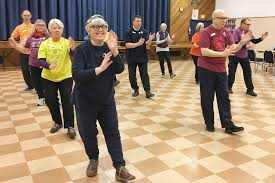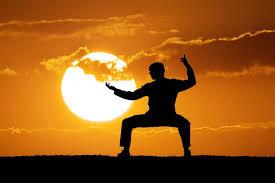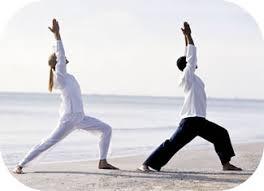Learn more about health with this collection
How to showcase your skills and experience
How to answer common interview questions
How to make a good first impression
Tai Chi
Tai chi is a traditional Chinese form of exercise based in martial arts that involves slow movements and deep breaths.
Tai chi brings many physical and emotional benefits like decreased anxiety and depression and improvements in cognition and chronic disease management.
105
377 reads
Benefits Of Tai Chi
- It may help with reducing stress, though most evidence is anecdotal.
- Improves mood if you are depressed or anxious.
- Better sleep as it may leads to a more restful sleep.
- Promotes weight loss.
- Improves cognition in older adults with cognitive impairment. More specifically, it improves memory and executive functioning skills.
- Reduces risk of falling in older adults by improving balance and motor function save and reducing fear of falling.
- Improves fibromyalgia symptoms.
- Improves COPD symptoms leading to improvements in ability to exercise and quality of life.
- Improves balance and strength in people with Parkinson’s.
- Safe for people with coronary heart disease.
- Reduces pain from arthritis and improves mobility.
109
157 reads
Tai Chi and safety
Tai chi is generally a safe exercise with few side effects but it’s good to talk to a doctor before starting. Beginners may experience some aches or pains after practicing tai chi.
More rigorous forms of tai chi and improper practices are associated with increased risk of injury to joints. Especially if you’re new to tai chi, consider attending a class or working with an instructor to reduce your risk of injury.
75
156 reads
Choosing a Tai Chi Style
All styles of tai chi incorporate continuous movement from one pose to the next and can be modified to suit your goals and personal fitness level. The styles are:
- Yang: focuses on slow, graceful movements and relaxation. Good starting point for beginners.
- Wu: emphasizes micro-movements and practiced very slowly.
- Chen: uses slow and fast movements. Somewhat difficult for beginners.
- Sun: is similar to Chen style but involves less crouching, kicking, and punching, making it less physically demanding.
- Hao: focuses on accurate position and internal strength.
119
197 reads
Tai Chi Differ and Yoga
Tai chi emphasizes fluid movement and has roots in Chinese culture. Yoga focuses on posing and originated in Northern India.
Both tai chi and yoga are forms of exercise that involve meditation and deep breathing, and both bring benefits, such as stress relief and mood and sleep improvements.
96
301 reads
CURATED BY
More like this
4 ideas
Tai chi: Benefits, types, and history
medicalnewstoday.com
1 idea
12 ideas
12 Science-Based Benefits of Meditation
healthline.com
Read & Learn
20x Faster
without
deepstash
with
deepstash
with
deepstash
Access to 200,000+ ideas
—
Access to the mobile app
—
Unlimited idea saving & library
—
—
Unlimited history
—
—
Unlimited listening to ideas
—
—
Downloading & offline access
—
—
Personalized recommendations
—
—
Supercharge your mind with one idea per day
Enter your email and spend 1 minute every day to learn something new.
I agree to receive email updates




